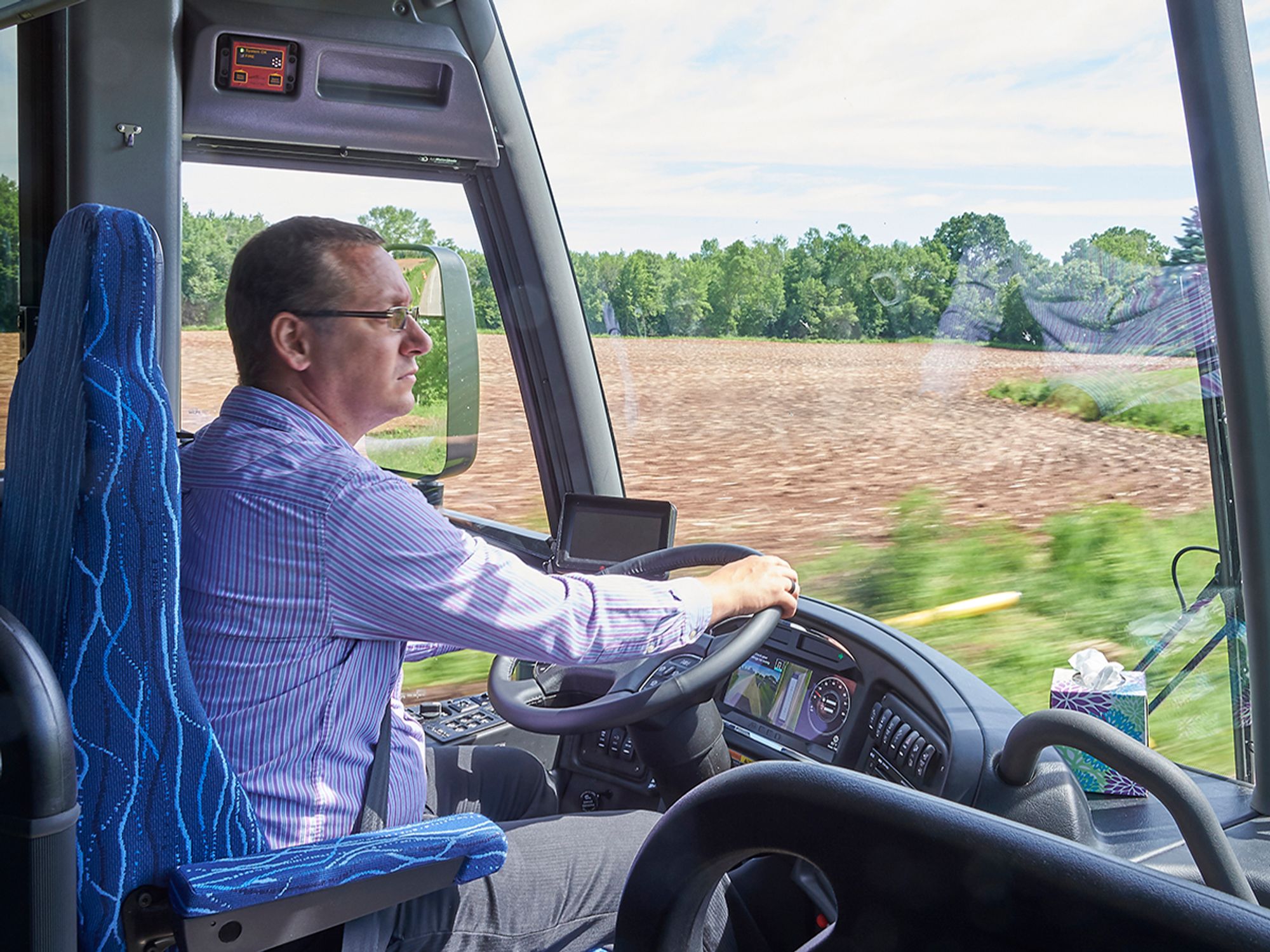Training

- Entry-level driver training for passenger-carrying drivers hired prior to February 7, 2022, with less than one year of commercial driver’s license (CDL) driving experience, must include training in driver qualifications, hours of service, driver wellness, and whistle-blower protection.
- Passenger-carrying drivers who do not have a commercial learner’s permit (CLP), CDL, or a passenger or school bus endorsement, prior to February 7, 2022, must be trained pursuant to applicable provisions of the Entry-Level Driver Training Final rule.
- Interstate passenger carriers for-hire are prohibited from discriminatory seating, smoking (except in chartered trips), and must abide by various requirements if providing regular-route transportation services.
All employers and employees must be instructed in, be knowledgeable of, and comply with all applicable Federal Motor Carrier Safety Regulations (FMCSRs). (49 CFR 390.3(e)). New-hire and regular training is essential to maintaining a knowledgeable and safety-compliant passenger transportation workforce.
New-hire training
Most companies require new employees to undergo a period of initial training, many times referred to as “orientation.” A good part of the orientation should be spent going through the FMCSRs, as well as the company policies and procedures that are in place to assure compliance with and even exceed the regulations. It is important that both drivers and office associates know and understand the policies and procedures.
Most of the applicable safety-based regulations have been issued by the Federal Motor Carrier Safety Administration (FMCSA). These safety-based regulations include:
- Part 374 — Passenger carrier regulations
- Part 382 — Drug and alcohol testing
- Part 383 — CDL requirements
- Part 390 — General regulations
- Part 391 — Qualification of drivers
- Part 392 — Driving of motor vehicles
- Part 393 — Parts and accessories
- Part 395 — Hours of service applicable to passenger-carrying vehicle drivers (395.1 and 395.5)
- Part 396 — Inspection, repair, and maintenance
For additional information, see Hours of Service – Passenger Carrying Vehicles.
Entry-level driver training
Entry-level driver training for drivers hired prior to February 7, 2022, with less than one year of commercial driver’s license (CDL) driving experience, must have in their DQ file an ELDT certificate documenting training in driver qualifications, hours of service and fatigue countermeasures, driver wellness, and whistle-blower protection in accordance with Part 380 Subpart E.
Drivers who do not have a commercial learner’s Permit (CLP), CDL, or a passenger or school bus endorsement, prior to February 7, 2022, must be trained under the Entry-Level Driver Training Final rule as detailed in Part 380, Subpart F, and Appendices A, B, C, and D, as applicable.
For more details, see Entry-level driver training (ELDT).
Part 374 Passenger Carrier Requirements
Part 374 of the FMCSRs contains miscellaneous requirements for interstate passenger carriers for-hire, covering diverse issues from discrimination and smoking to detailed rules for regular-route transportation.
Discrimination
Interstate passenger carriers for-hire must not use seating practices based on race, color, creed, or national origin. Every ticket sold must include a plainly legible notice that reads: “Seating aboard vehicles operated in interstate or foreign commerce is without regard to race, color, creed, or national origin.” Discrimination is also prohibited within terminal facilities with required notices posted. Any interference with a carrier’s observance of the anti-discrimination requirements must be reported within 15 days to the U.S. Department of Transportation (DOT).
Smoking
Interstate passenger carriers for-hire must prohibit smoking on vehicles in scheduled or special service. Chartered trips are exempt from this. Carriers must make passengers, drivers, and other employees aware of the smoking ban through appropriate announcements, no-smoking symbols, and the posting of signs in all vehicles. The signs must be (and remain) legible and must indicate that smoking is prohibited by federal regulation.
Regular-route operations Interstate passenger carriers for-hire that provide regular-route transportation must comply with Part 374 requirements covering:
- Ticketing and passenger information
- Baggage
- Terminal facilities
- Service responsibilities
- Equipment
- Bus and driver identification
- Petitions for exception from regulations
Refer to Part 374 for additional details.
Other Agency Requirements
Another agency, the Occupational Safety and Health Administration (OSHA), provides general worker protections. Other DOT agencies, such as the DOT section that oversees the enforcement of the Americans with Disabilities Act passenger protections, also have regulations that apply to passenger-carrying drivers.
Areas of special regulatory oversight
Certain areas of interstate passenger carrier regulation are likely to get special oversight attention, including:
- Vehicle inspection (the rules and the company policy and procedures)
- Hours-of-service compliance (the rules and the company policy)
- Driver qualification requirements (the rules and the company policy)
- Americans with Disabilities Act (ADA)
